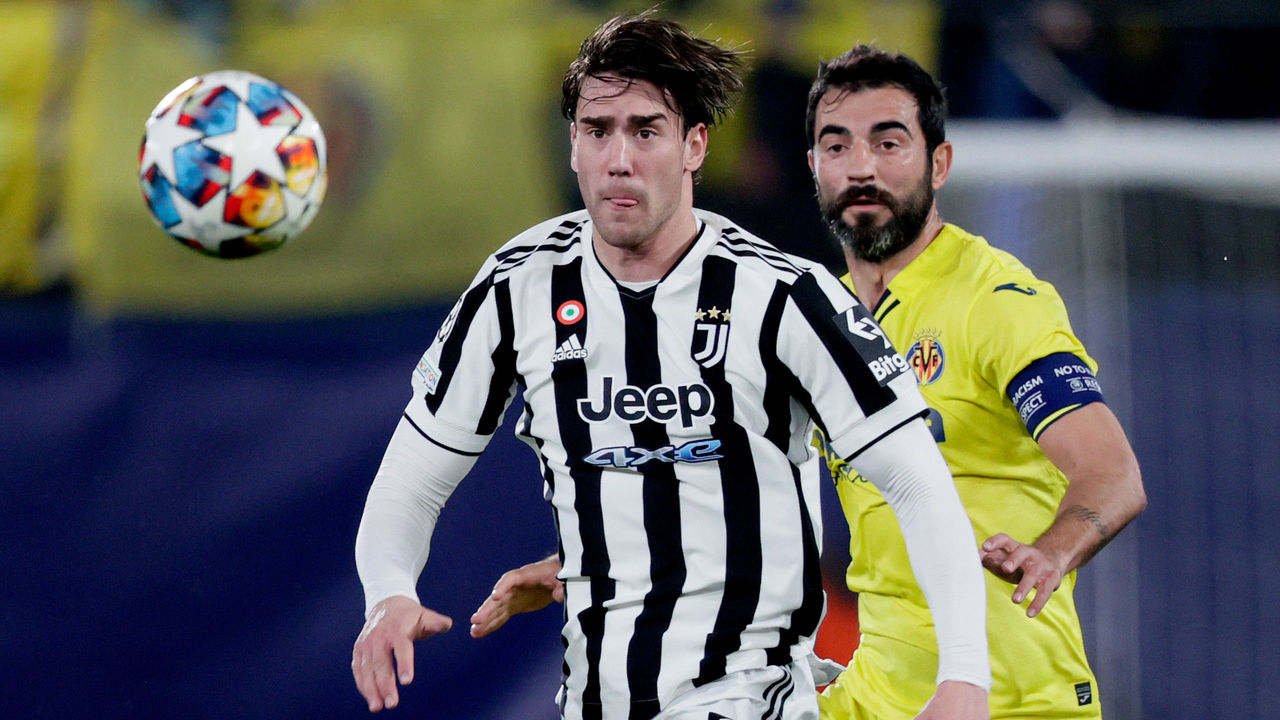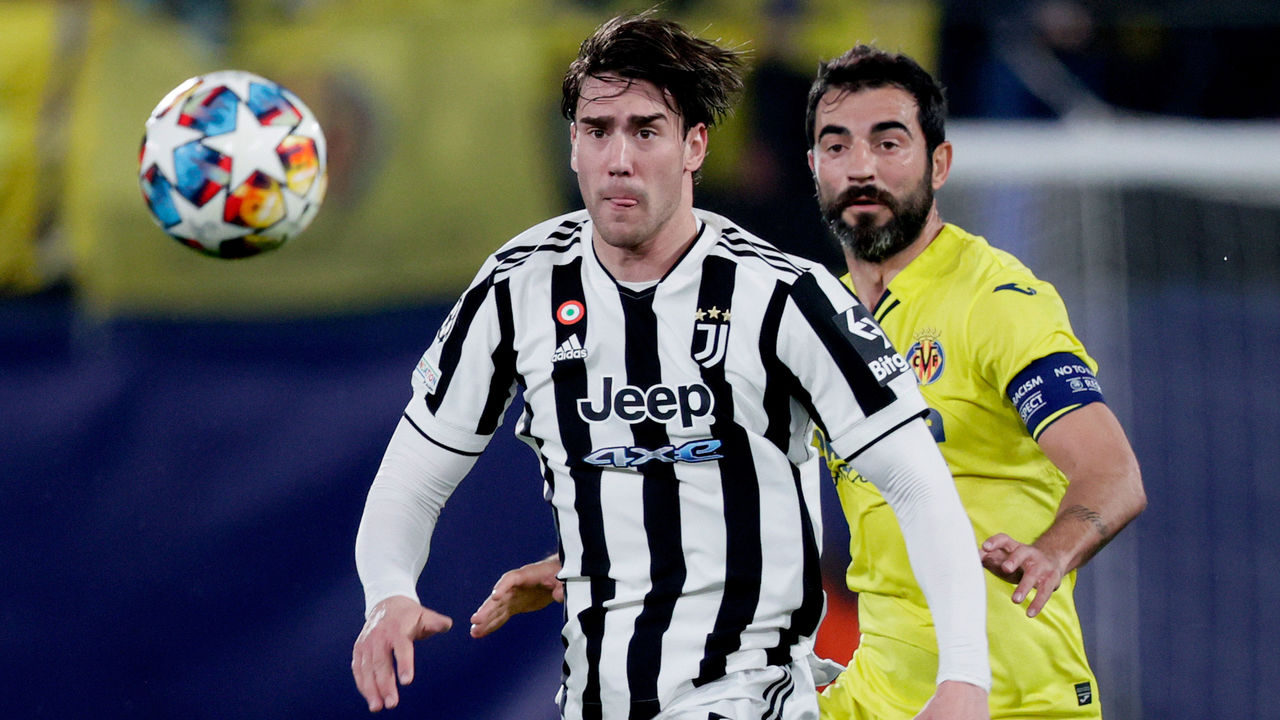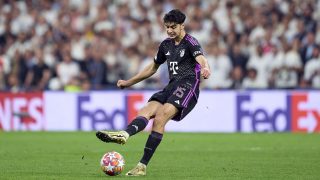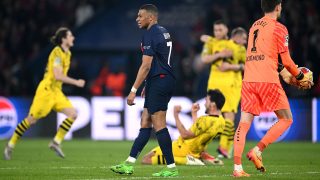
4 takeaways from Tuesday's Champions League action
The Champions League last 16 rumbles on this week with the final batch of first-leg matches. Below, we dissect the biggest talking points from Tuesday’s games in Europe’s premier club competition.
Silva’s all-around game still staggering
In the 86th minute, Thiago Silva shifted to a different persona. The Chelsea defender quietly and almost invisibly mopped up spills like an attentive Edwardian servant for most of Lille’s visit, until Benjamin Andre rolled the ball between Andreas Christensen’s legs.
Silva swooped across and went to the ground, snapping the ball out of play and leaving left-back Gabriel Gudmundsson to pick himself up off the turf.
When the moment called for it, Silva’s calmness was ditched for a more demonstrative, John Terry-esque approach to danger. It was compelling evidence that, at the age of 37, he’s still one of the game’s best all-around defenders.
12 – Chelsea’s 37-year-old centre-back Thiago Silva won possession 12 times tonight against Lille, the most he’s ever done so in a Champions League match, with tonight his 94th appearance in the competition. Rock. pic.twitter.com/UhLL840KzP
— OptaJoe (@OptaJoe) February 22, 2022
Silva’s excellence was the foundation upon which Chelsea built their 2-0 win at Stamford Bridge.
Lille didn’t hold back for their trip to London. The dangerous pair of Renato Sanches and Jonathan Bamba worked on either side of Jonathan David, while defensive midfielder Amadou Onana tried to run through the heart of Chelsea’s lineup in his more advanced position. But Silva’s authority was constant in the center of the Blues’ back-three.
He beat David – the second-highest top scorer in Ligue 1 – to the ball only 26 seconds after kickoff, setting the tone in a match where the Canadian striker couldn’t muster a shot on target or a successful dribble.
As the first half wore on with the score only 1-0, Lille gained confidence. But when the ball flew over Marcos Alonso’s head to give Bamba a chance to run and cross, Silva was there to block the delivery. He was there time and time again, and he set the tone for the rest of his teammates.
Silva glanced at Alonso after that rare lapse by Chelsea’s defense. That’s all that was needed: the Spaniard didn’t do it again.
Vlahovic shines, but he needs more support
Dusan Vlahovic’s Champions League debut could hardly have gotten off to a better start.
The 22-year-old Serbian, upon whom much pressure has been heaped to overhaul Juventus’ insipid attack, needed less than a minute to score his first goal in Europe’s elite club competition Tuesday. The powerful striker showcased the explosiveness, strength, and finishing ability that persuaded Juve to spend an initial €81.6 million on him in January when he fired the Bianconeri into a first-minute lead against Villarreal at the Estadio de la Ceramica.
Through no fault of his own, though, it was a laborious outing for Vlahovic the rest of the way in the eventual 1-1 draw.

Max Allegri, to the continued chagrin of many Juventus supporters, opted for a 5-4-1 formation out of possession, setting up the Italian side in a low defensive block and leaving Vlahovic isolated up front. Against that backdrop, the former Fiorentina man did well to hold up play against two defenders, win free-kicks to break up the home team’s elongated spells of possession, and, of course, take the one real chance he was afforded. But Allegri needs to do a better job of putting Vlahovic in a position to succeed without constantly having to grind through matches with little help, lest he get frustrated and run down.
“He must be supported, and I must protect him until the end, as I protected players with less experience,” Allegri said prior to the last-16 encounter. “It’s not just a technical question, but also psychological. For the first time, he read an entire page on a newspaper asking why he hadn’t scored. It had never happened before.”
The return of Paulo Dybala from injury should, in theory, help Vlahovic flourish. But unless Allegri commits to at least a slightly more adventurous style of play where Vlahovic doesn’t spend so much time with his back to the goal on the halfway line, Juventus won’t extract the best out of their prized addition.
Missed opportunity for Villarreal
On level footing after the first leg, Villarreal should go into the return fixture in Turin with the confidence that they have a fantastic chance of reaching the Champions League quarterfinals for the first time since 2009; outside of the aforementioned Vlahovic, Juventus did little to suggest they can overpower Unai Emery’s organized team.
The 1-1 draw will fill Villarreal with optimism, but also a hint of regret. Tuesday’s game was eminently winnable.
This was a Juventus side, remember, missing Dybala, Giorgio Chiellini, and long-term absentee Federico Chiesa, among other less-celebrated names. Leonardo Bonucci, meanwhile, was only fit enough to start on the bench, forcing left-back Alex Sandro to begin the match in central defense.
Though they dictated play for the vast majority of the contest and controlled proceedings in midfield through Etienne Capoue and Dani Parejo – the duo that combined for the eventual equalizer – the Yellow Submarine only mustered nine total shot attempts from 59% possession. Plus, their goal was more the product of an atrocious defensive breakdown than a scintillating sequence of play.
pic.twitter.com/fRiNsMUokI
— JuveFC (@juvefcdotcom) February 22, 2022
Despite Emery utilizing an attack-minded lineup, there wasn’t enough invention in the club’s play against an opponent that was asking to be put under pressure. Samuel Chukwueze was twisting ponderous full-back Mattia De Sciglio into a pretzel whenever he got into one-on-one situations, but Villarreal didn’t do enough to exploit that obvious advantage and get the Nigerian winger isolated consistently enough.
If the Spanish outfit falters in the second leg March 16, this will go down as a big missed opportunity.
VAR, what is it good for?
Juve midfielder Adrien Rabiot, somehow, was only shown a yellow card for this horrible challenge on Chukwueze:
? VAR didn’t give this as a red card to Juventus’ Adrien Rabiot… #villarrealjuventus pic.twitter.com/QDe0ymqmvs
— talkSPORT (@talkSPORT) February 22, 2022
Still images can sometimes be misleading, but there’s no getting around this one: Rabiot should’ve been sent off. It’s problematic that referee Daniel Siebert missed such an obvious call on the field, but you can at least give him some leeway considering the speed at which things happen on the pitch and potential obstructions.
But there’s absolutely no excuse for the Video Assistant Referee – in this case, Bastian Dankert – not to indicate to Siebert that he should go have a look at the monitor and reconsider his original ruling.
The implementation of VAR in football continues to be a mess.







